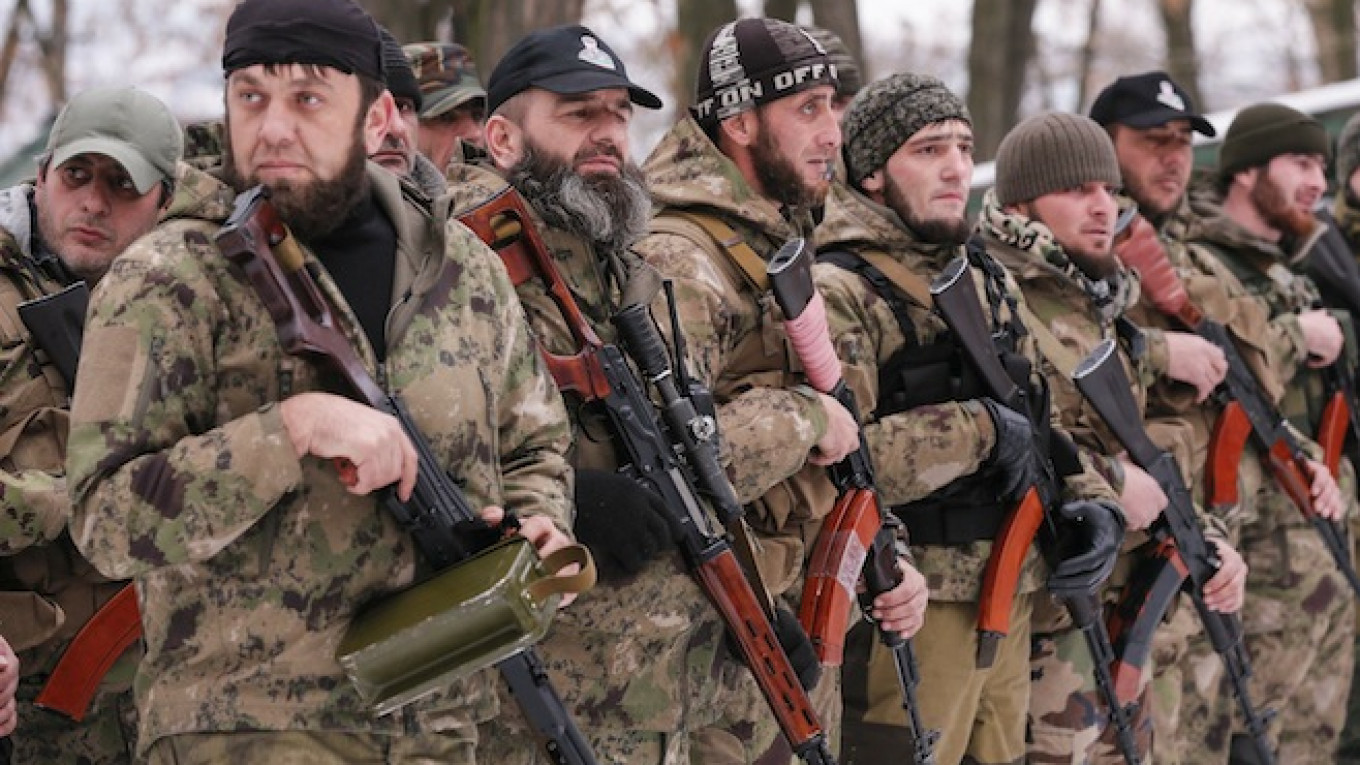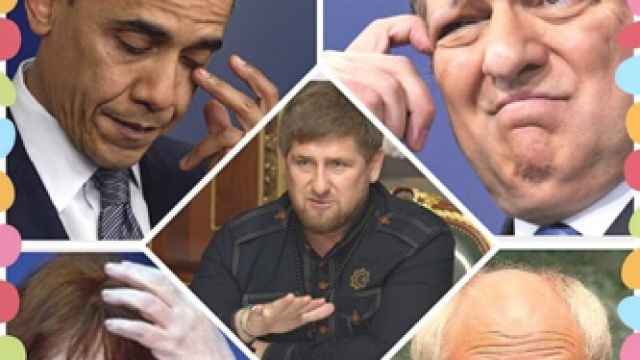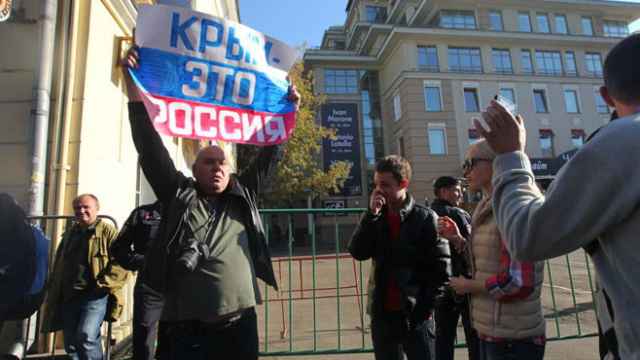Chanting "Allahu Akbar" (God is great), dozens of armed men in camouflage uniforms from Russia's republic of Chechnya train in snow in a camp in the rebel-held east Ukraine.
They say their "Death" unit fighting Ukrainian forces has 300 people, mostly former state security troops in the mainly Muslim region where Moscow waged two wars against Islamic insurgents and which is now run by a Kremlin-backed strongman.
Seasoned Chechen fighters, whose combat experience often dates back to the 1994-96 and 1999-2000 wars, fight on both sides in east Ukraine, adding to the complexity of a conflict in which the West says Russian troops are involved.
"This is volunteer battalion Death," a deputy commander of the group who only gave his nickname "Stinger" said at a former tourist camp the unit turned into their base outside of the rebel stronghold of Donetsk in east Ukraine.
"There are about three hundred of us in the Donetsk region. We have battlefield experience ranging from 10 to 20 years starting from 1995," said the man in his 40s, a pistol fixed to his thigh.
He had a little Chechen flag in green, white and red stitched to his cap and spoke Russian with a strong Caucasus accent. Several cars with Chechen registration plates were parked in the camp.
Russia sides with the rebels in east Ukraine but denies sending serving troops to reinforce them. Some fighters on the ground admit to being former Russian servicemen, or "on leave." Moscow has said any Russians fighting there are volunteers.
In Chechnya, two brutal wars quashed the separatist insurgents but unrest is still simmering.
Gunmen attacked a police post and captured a building in the regional capital of Grozny last week and at least 20 people, including 10 police and 10 suspected militants, were killed in gunbattles that ensued.
Violence erupted just hours before President Vladimir Putin was due to give a major speech in Moscow, a symbolic challenge to the man credited for the Russian army victory in the second Chechen war.
Reestablishing Moscow's control over Chechnya and then introducing an uneasy peace under Ramzan Kadyrov, whom critics and rights campaigners accuse of heavy-handed tactics and massive rights violations, is seen by Putin's supporters as a key achievement.
In Ukraine, Stinger's men are sworn enemies with another group of Chechens who fight on the opposite side of the conflict and support the Kiev government troops.
Some of them have Western passports after fleeing Russia following the two wars. They say Moscow is theirs and Kiev's joint enemy and that Chechnya is occupied by Russia.
Stinger, however, said Chechnya was being destroyed in the wars of the 1990s and became peaceful again only when some local leaders allied with the Kremlin.
Some of those in the Death unit said they had initially fought against Russia in Chechnya but later switched sides and were amnestied by a former Kremlin-allied head of the region, Ramzan's father, Akhmed Kadyrov.
"Now we are [former] soldiers and officers of the Russian army, of Russian special forces, mostly veterans of war campaigns," Stinger said.
A Message from The Moscow Times:
Dear readers,
We are facing unprecedented challenges. Russia's Prosecutor General's Office has designated The Moscow Times as an "undesirable" organization, criminalizing our work and putting our staff at risk of prosecution. This follows our earlier unjust labeling as a "foreign agent."
These actions are direct attempts to silence independent journalism in Russia. The authorities claim our work "discredits the decisions of the Russian leadership." We see things differently: we strive to provide accurate, unbiased reporting on Russia.
We, the journalists of The Moscow Times, refuse to be silenced. But to continue our work, we need your help.
Your support, no matter how small, makes a world of difference. If you can, please support us monthly starting from just $2. It's quick to set up, and every contribution makes a significant impact.
By supporting The Moscow Times, you're defending open, independent journalism in the face of repression. Thank you for standing with us.
Remind me later.






